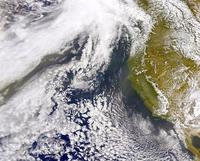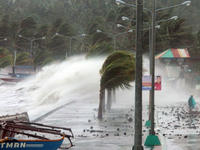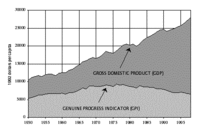-
Turkeys inspire smartphone-capable early warning system for toxins
Some may think of turkeys as good for just lunch meat and holiday meals, but University of California, Berkeley bioengineers saw inspiration in the big birds for a new type of biosensor which changes color when exposed to chemical vapors. This feature makes the sensors valuable detectors of toxins or airborne pathogens. The technology can be adapted so that smartphones can help analyze the color fingerprint of the target chemical. In the future, it could potentially be used to create a breath test to detect cancer and other diseases.”
-
-
Highly sensitive tactile e-whiskers for robotics, other applications

From the world of nanotechnology we have gotten electronic skin, or e-skin, and electronic eye implants or e-eyes. Now we are on the verge of electronic whiskers. Researchers have created tactile sensors from composite films of carbon nanotubes and silver nanoparticles similar to the highly sensitive whiskers of cats and rats. E-whiskers could be used to mediate tactile sensing for the spatial mapping of nearby objects, and could also lead to wearable sensors for measuring heartbeat and pulse rate.
-
-
Nearby Georgia basin may amplify ground shaking from quakes in Vancouver
In Greater Vancouver, there are more than 700 12-story and taller commercial and residential buildings, and large structures — high-rise buildings, bridges, and pipelines — which are more affected by long period seismic waves, or long wavelength shaking. Researchers find that tall buildings, bridges, and other long-period structures in Greater Vancouver may experience greater shaking from large (M 6.8 +) earthquakes than previously thought due to the amplification of surface waves passing through the Georgia basin.
-
-
China exports air pollution, as well as consumer goods, to the U.S.

Chinese air pollution blowing across the Pacific Ocean is often caused by the manufacturing of goods for export to the United States and Europe, according to findings of a new study. The study is the first to quantify how much of the pollution reaching the American West Coast is from the production in China of cellphones, televisions, and other consumer items imported here and elsewhere.
-
-
Coastal flooding in Ireland offers warning of things to come
Flooding in Ireland and the U.K. is typically associated with heavy rainfall, but the reason for more recent coastal flooding is different. Experts say that the increases in mean sea level suggests that mean sea-level rise rather than storminess is largely contributing to the dramatic increase in the frequency and scope of coastal flooding. Major cities like Cork, Dublin, and Galway will soon feel the impact of sea-level rise, and developers are discouraged from building within 100 meters of soft shoreline.
-
-
TV audiences often do not care about suffering in other countries
Television audiences care less about suffering experienced by people in other countries when they watch the news than when they watch a range of different programs, according to new research. New research finds that study participants were in many cases indifferent to what they saw and relieved that it did not affect them, especially the younger and male viewers. There were instances, however, mostly among older and female participants, of particularly emotional responses to suffering.
-
-
Tidal energy could provide half of Scotland’s power needs

A stretch of water off the north coast of the United Kingdom could provide enough energy to power about half of Scotland, engineers have found. Researchers have completed the most detailed study yet of how much tidal power could be generated by turbines placed in the Pentland Firth, between mainland Scotland and Orkney. They estimate 1.9 gigawatts (GW) could be available.
-
-
Growing threat of intense tropical cyclones hitting East Asia

The intensity of tropical cyclones hitting East Asia has significantly increased over the past thirty years, according to a new study. The coastlines of China, Korea, and Japan in particular have experienced increasingly stronger cyclones, which the researchers have attributed to increasing sea surface temperatures and a change in atmospheric circulation patterns over the coastal seas.
-
-
Carbon nanotube sponge helps in water clean-up
A carbon nanotube sponge capable of soaking up water contaminants, such as fertilizers, pesticides, and pharmaceuticals, more than three times more efficiently than previous efforts has been presented in a new study published today. The carbon nanotube (CNT) sponges, uniquely doped with sulphur, also demonstrated a high capacity to absorb oil, potentially opening up the possibility of using the material in industrial accidents and oil spill clean-ups.
-
-
Toxins-breathing bacteria to help industry, environment
Preliminary tests suggest that the bacteria could be used to remove these pollutants from the wastewater and protect the surrounding ecosystems. Buried deep in the mud along the banks of a remote salt lake near Yosemite National Park are colonies of bacteria with an unusual property: they breathe a toxic metal to survive. Researchers believe that this unusual organism may one day become a useful tool for industry and environmental protection – for example, the bacteria could be used simply to clean up the water, but it might also be possible for the bacteria to help humans recover and recycle the valuable elements in the water.
-
-
New L.A. fault map threatens Hollywood development projects
The state of California recently released new geological maps which reveal the presence of an active earthquake fault along the path of major developments in Hollywood. The maps established a zone of 500 feet on both sides of the fault, and state law will require new developments within the zone to conduct underground seismic testing to determine whether the fault runs beneath planned development sites. Building on top of faults is prohibited. Three prominent Hollywood developments — the Millennium Hollywood skyscraper project, the Blvd6200 development, and an apartment project on Yucca Street — are within the 500-foot fault zone.
-
-
Massachusetts takes steps to withstand climate change impacts
Governor Deval Patrick of Massachusetts earlier this week unveiled a $50 million plan to help prepare Massachusetts for the challenges climate change poses to energy supplies, public health, transportation, and basic infrastructure in his state. A $40 million grant from the state’s Department of Energy Resources will help cities and towns develop protections around energy services, and $10 million will go toward shoring up critical coastal infrastructure and dam repair.
-
-
Time to replace GDP with new metrics: experts

Gross Domestic Product is a misleading measure of national success, say public policy experts. “When it was instituted seven decades ago, GDP was a relevant signpost of progress,” they say. “Increased economic activity was credited with providing employment, income and amenities to reduce social conflict and prevent another world war. But the world today is very different compared to how it was then.”
-
-
Quantum physics to make possible secure, single-use computer memories
Computer security systems may one day get a boost from quantum physics, as researchers have devised a way to make a security device that has proved notoriously difficult to build — a “one-shot” memory unit, whose contents can be read only a single time. One-shot memories would have a wide range of possible applications such as protecting the transfer of large sums of money electronically.
-
-
Carbon nanotubes improve flame-resistant coating
Using an approach akin to assembling a club sandwich at the nanoscale, researchers have succeeded in crafting a uniform, multi-walled carbon-nanotube-based coating that greatly reduces the flammability of foam commonly used in upholstered furniture and other soft furnishings. In tests, the flammability of the nanotube-coated polyurethane foam was reduced 35 percent compared with untreated foam. As important, the coating prevented melting and pooling of the foam, which generates additional flames that are a major contributor to the spread of fires.
-
More headlines
The long view
New Technology is Keeping the Skies Safe
DHS S&T Baggage, Cargo, and People Screening (BCP) Program develops state-of-the-art screening solutions to help secure airspace, communities, and borders
Factories First: Winning the Drone War Before It Starts
Wars are won by factories before they are won on the battlefield,Martin C. Feldmann writes, noting that the United States lacks the manufacturing depth for the coming drone age. Rectifying this situation “will take far more than procurement tweaks,” Feldmann writes. “It demands a national-level, wartime-scale industrial mobilization.”
How Artificial General Intelligence Could Affect the Rise and Fall of Nations
By Barry Pavel et al.
Visions for potential AGI futures: A new report from RAND aims to stimulate thinking among policymakers about possible impacts of the development of artificial general intelligence (AGI) on geopolitics and the world order.
Smaller Nuclear Reactors Spark Renewed Interest in a Once-Shunned Energy Source
By David Montgomery
In the past two years, half the states have taken action to promote nuclear power, from creating nuclear task forces to integrating nuclear into long-term energy plans.
Keeping the Lights on with Nuclear Waste: Radiochemistry Transforms Nuclear Waste into Strategic Materials
By John Domol
How UNLV radiochemistry is pioneering the future of energy in the Southwest by salvaging strategic materials from nuclear dumps –and making it safe.
Model Predicts Long-Term Effects of Nuclear Waste on Underground Disposal Systems
By Zach Winn
The simulations matched results from an underground lab experiment in Switzerland, suggesting modeling could be used to validate the safety of nuclear disposal sites.
